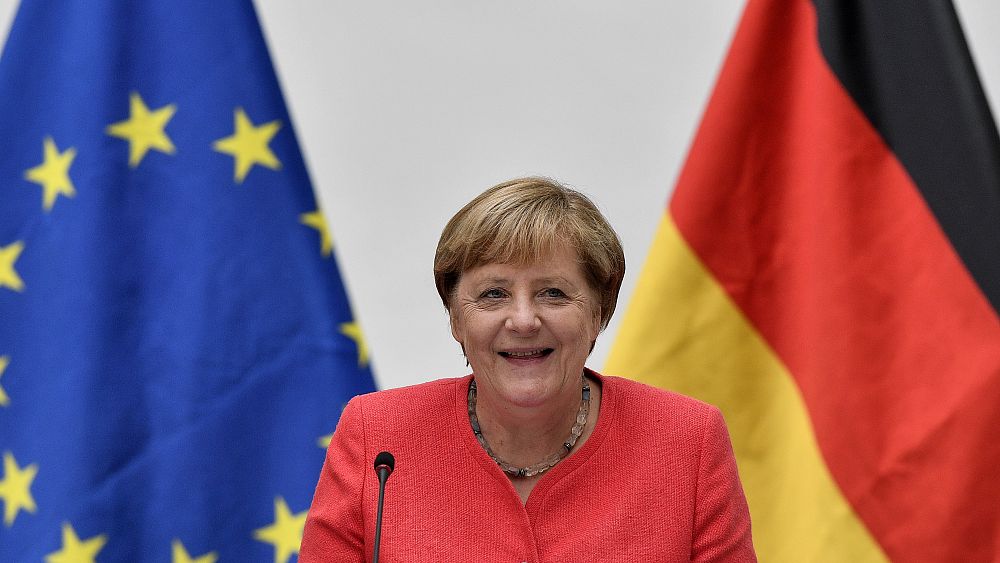
A majority of Europeans believe Germany’s star is fading, a new survey has revealed, as the country prepares for life without Angela Merkel.
The poll, released ahead of Germany’s federal election on September 26, shows 34% of Europeans surveyed think the best is behind the country.
Germans are the most pessimistic of the dozen EU countries surveyed, with 52% seeing their nation as a declining power, according to the poll, released by the European Council on Foreign Relations (ECFR) think tank.
Majorities in eight other countries — Austria, Hungary, Poland, Italy, the Netherlands, France, Bulgaria and Denmark — all agreed.
Most Spanish respondents think Germany’s golden age is now, while Bulgaria and Hungary had the largest proportion of people believing the country’s best times are still to come.
“Without Merkel, the foundations of Germany’s leadership role in the EU will be significantly weaker – unless the new government implements a credible strategy that goes beyond Merkelism,” writes the ECFR in an analysis accompanying the survey.
“If many Europeans believe Germany’s star is fading, this could undermine their trust in Berlin. Their positive attitudes towards Merkel’s Germany seem to have had a lot to do with the country’s stable economic growth and low unemployment in the last two decades despite challenging economic conditions in Europe.”
German respondents also lack confidence in their country’s ability to lead European Union countries in key areas.
Only in the area of democracy and human rights did more than a third of Germans believe the country could provide European leadership.
In areas like defence and security, just 20% believed in Berlin, considerable fewer than the combined total of other European countries surveyed (29%). It was the same for economic and financial issues, with 37% of Europeans having confidence in Berlin, more than 31% of Germans.
“At the same time, Germans do not fear that they will fall back into nationalism,” the ECFR wrote “Only 19 per cent of them believe that there is such a risk – compared to 27 per cent in the other 11 surveyed countries. In turn, 36 per cent of Germans expect their country to become even more focused on helping other Europeans, significantly more than the 25 per cent of respondents in other surveyed countries. Therefore, Germans have a fairly positive image of their own intentions but do not seem to believe that their country’s ability to provide leadership is a precondition for being reliable and supportive of other member states. In the post-Merkel era, this may not be the right conclusion. Germans may need to shake off their doubts about Germany’s leadership because other Europeans are counting on it to provide this.”
After four election victories and 16 years leading the EU’s largest economy, the outgoing German leader is due to bow out following a national election later this month.
The ECFR survey suggests Merkel will be missed: she enjoys widespread support among Europeans, with many citizens across the region saying she would be their preferred candidate if she ran for president of Europe against France’s Emmanuel Macron.
Across Europe, 41% of respondents said they would like to see Merkel as President, while just 14% would opt for her French counterpart Macron.
“Merkel’s popularity outweighs Macron’s across different corners of the EU – including in the Netherlands (58%), Spain (57%), Portugal (52%) and Denmark (46%) – demonstrating her success in positioning Germany as a unifying power,” the think tank found.
“Angela Merkel has come to embody a strong and stable Germany – positioning herself as Europe’s anchor through more than a decade of crises,” said Piotr Buras, co-author of the report and head of ECFR’s Warsaw office.
“But while European citizens are pinning their hopes on Berlin to steer the bloc, it is a legacy Germans themselves are not wholly comfortable with,” he added.
The authors of the report say the polling suggests changes are needed in Germany’s role in the EU.
“The key challenge, for whoever wins next week’s election, will be to convince Germans that a serious shift is required in how their country engages with the EU,” said Jana Puglierin, co-author and senior policy fellow at ECFR.
Puglierin and Buras argue Germany’s future leader may need to take a stronger stance against countries that violate European values while fighting for the bloc’s standing in the world.
“The days when Europe could look to the US for leadership and protection have now gone,” ECFR writes.
“What the EU needs now is a visionary Germany that will stand up for the bloc’s values and defend its place in the world,” said Buras.
